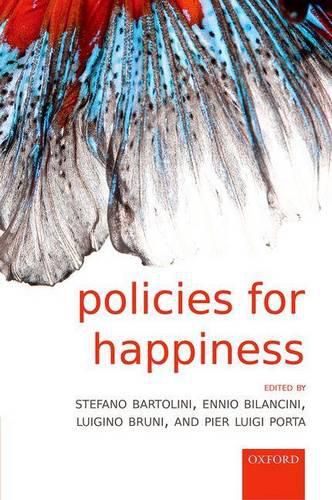Readings Newsletter
Become a Readings Member to make your shopping experience even easier.
Sign in or sign up for free!
You’re not far away from qualifying for FREE standard shipping within Australia
You’ve qualified for FREE standard shipping within Australia
The cart is loading…






In recent years, debates on the economics of happiness have shown that, over the long-term, well-being is influenced more by social and personal relationships than by income. This evidence challenges the traditional economic policy paradigm that has emphasized income as the primary determinant of well-being. This volume brings together contributions from leading scholars to ask: What should be done to improve the quality of people’s lives? Can economic and social changes be made which enhance well-being? What policies are required? How do policies for well-being differ from traditional ones targeted on redistribution, the correction of market inefficiencies, and growth? Are there dimensions of well-being that have been neglected by traditional policies? Is happiness a meaningful policy target? The volume presents reflections and proposals which constitute a first step towards answering these questions.
$9.00 standard shipping within Australia
FREE standard shipping within Australia for orders over $100.00
Express & International shipping calculated at checkout
In recent years, debates on the economics of happiness have shown that, over the long-term, well-being is influenced more by social and personal relationships than by income. This evidence challenges the traditional economic policy paradigm that has emphasized income as the primary determinant of well-being. This volume brings together contributions from leading scholars to ask: What should be done to improve the quality of people’s lives? Can economic and social changes be made which enhance well-being? What policies are required? How do policies for well-being differ from traditional ones targeted on redistribution, the correction of market inefficiencies, and growth? Are there dimensions of well-being that have been neglected by traditional policies? Is happiness a meaningful policy target? The volume presents reflections and proposals which constitute a first step towards answering these questions.